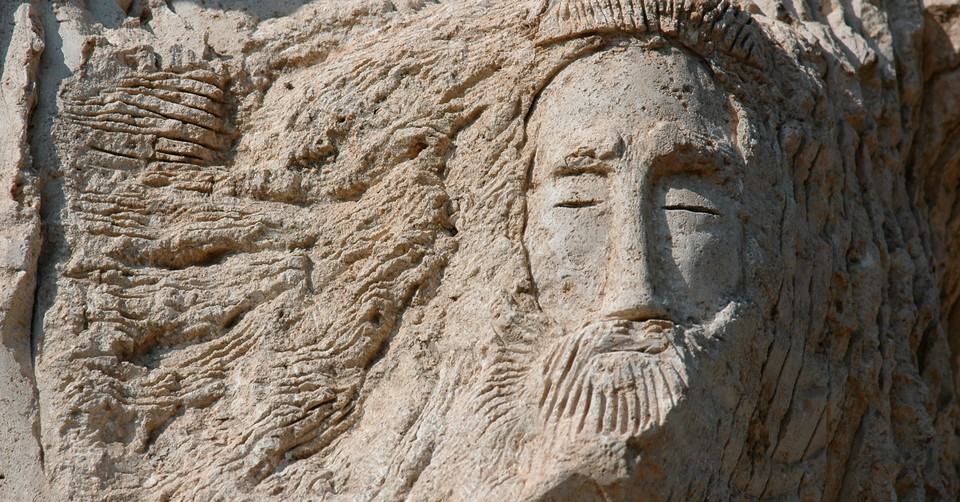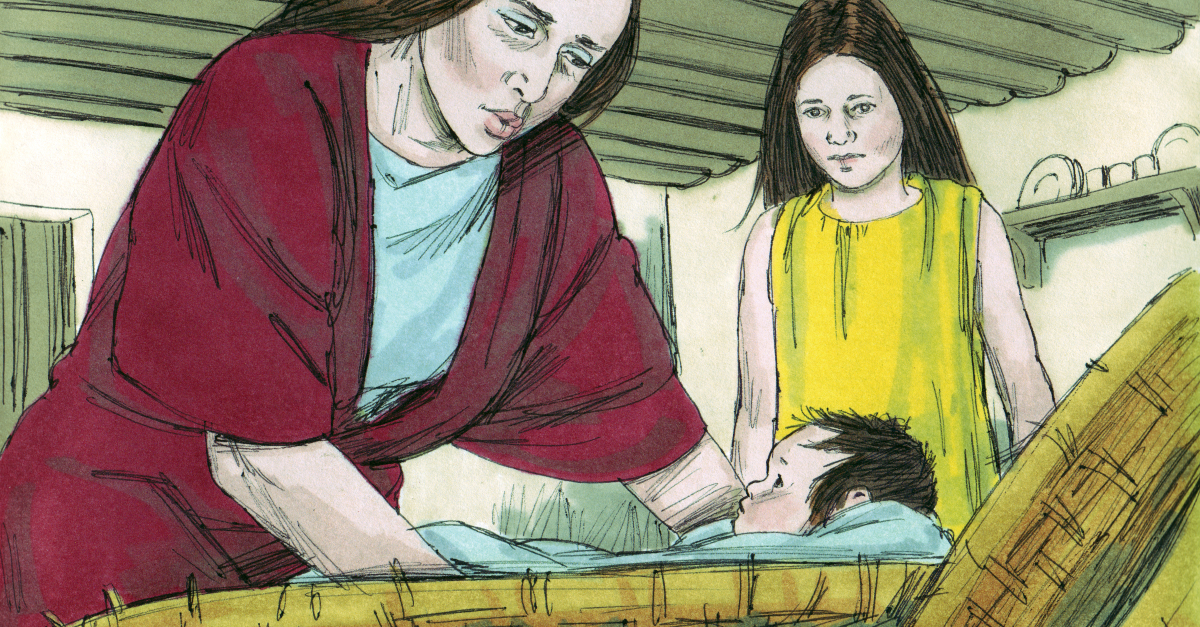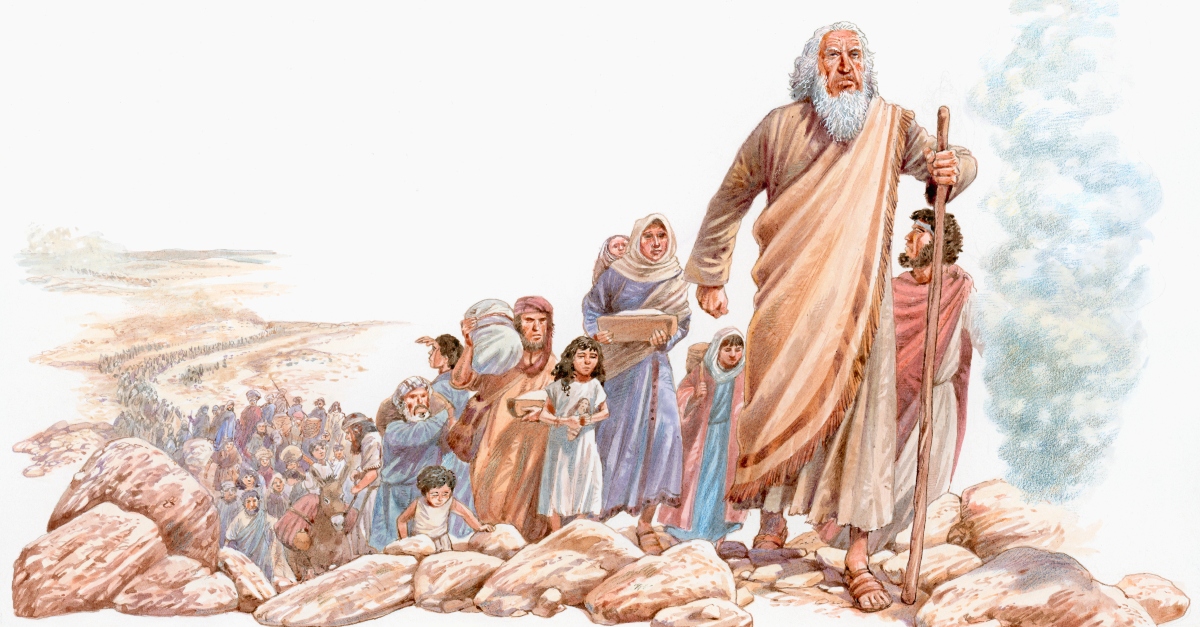How Old Was Moses When He Died?

Deuteronomy 34:7 tells us that Moses died at 120 years old - " Moses was a hundred and twenty years old when he died, yet his eyes were not weak nor his strength gone."
If you told anyone that someone you loved lived to the ripe old age of 120, they would gawk at you. They would say, “Wow, they lived an incredibly long life here on earth.”
But if you asked someone in the Old Testament how long Moses lived, and you told them 120 years, they might say that he died prematurely. He dies with his eyes and strength strong (Deuteronomy 34:7).
We may know other figures throughout the Bible who had gone blind because of their old age such as Isaac, but Moses dies with his vision intact and seems like he could’ve lived for several more years.
So why does God allow Moses to die early? Did Moses do something during his life to warrant a premature death? We’ll dive into these questions and more.

The Timeline of Moses’ Life
Moses lived an unusual life.
Although a Hebrew woman had given birth to him, due to a decree from Pharaoh for the Egyptians to kill all male Hebrew babies, God provided a way for Moses to have safe harbor growing up. An Egyptian princess finds him in the Nile, has Moses’ mother take care of him during the weaning years, and rears him as her own (Exodus 2).
For 40 years, he lives in Egypt as royalty—until he kills an Egyptian over the harsh treatment of a Hebrew slave. He runs away into the wilderness, to Midian, meets his wife, and settles there for another 40 years (Exodus 2).
At the age of 80, God appears to him in the form of a burning bush and commands him to go to Egypt to tell Pharaoh to let his people go (Exodus 3).
For those of us familiar with Moses’ story, he returns to Egypt, and 10 plagues fall upon Egypt as a result of their refusal to release the Hebrews. After the tenth plague, the Egyptians let them go, change their minds, and pursue them across the Red Sea (which collapses on the Egyptians).
Now escaped from Egypt, the Israelites trek to the promised land. During this trek, Moses receives the Ten Commandments from God, a list of rules to abide by, on Mount Sinai (Exodus 19).
But due to Israel’s celebration of idols and incessant complaining and disobedience, God prevents a great many of them from entering the promised land, and they wander the desert for 40 years, Moses included.
Before the Israelites reach the promised land, Moses dies at the age of 120.
Why Didn’t Moses Go to the Promised Land?
Much of Israel didn’t make it to the promised land due to obedience, Moses included. We’ll look at the verses that show this:
...and the Lord spoke to Moses, saying, “Take the staff, and assemble the congregation, you and Aaron your brother, and tell the rock before their eyes to yield its water. So you shall bring water out of the rock for them and give drink to the congregation and their cattle.” And Moses took the staff from before the Lord, as he commanded him. Then Moses and Aaron gathered the assembly together before the rock, and he said to them, “Hear now, you rebels: shall we bring water for you out of this rock?” And Moses lifted up his hand and struck the rock with his staff twice, and water came out abundantly, and the congregation drank, and their livestock. And the Lord said to Moses and Aaron, “Because you did not believe in me, to uphold me as holy in the eyes of the people of Israel, therefore you shall not bring this assembly into the land that I have given them.” – Numbers 20:7-12
Instead of speaking to the rock, Moses strikes it. But why in the world does this warrant him not getting into the promised land? Because he threw a tantrum?
Scholars have debated this. Some say that Moses calls the Israelites rebels and then acts the hypocrite by disobeying a direct command from God. Others have suggested that Moses took all the credit for the water coming out of the rock, something God did, and something that causes a king to get eaten by the worms in the New Testament when he takes credit for a gift from God (Acts 12). It appears they committed a double-whammy here: disobedience and not giving credit where credit was due.
For these reasons, Moses’ life is cut short.
We are told that Moses doesn't actually die of old age. Rather, he was in good health when he died.
Instead, Moses' death is portrayed as a direct act of God. Because God had previously told Moses that he would not enter the Promised Land due to his disobedience at Meribah (Numbers 20:12), we know that God took him home after he viewed the Promised Land from Mount Nebo, fulfilling God's decree.
Why Did People Live So Long in the Old Testament?
We may have noticed pre-flood that many people lived an extraordinary amount of years. Methuselah makes it to 969 years before he dies right before the Flood. And Moses seems to make it to the year 120 and seemed as though he could’ve lived many more years.
But isn’t there a Bible verse that says people won’t live past 120 after the flood?
After all Genesis 6:3 says, when God observes man’s wickedness, “Then the Lord said, “My Spirit will not contend with humans forever, for they are mortal, their days will be a hundred and twenty years.”
But after the flood, people seem to live longer than 120 years. Abraham lives to 175, Isaac 180. So what gives?
Some have suggested this meant God gave humans 120 years to repent prior to the Flood when he observed their wickedness. This commentary seems to align with the same interpretation.
This still doesn’t explain how before and after the flood people seemed to live for long periods of time. We know Josephus talks about this in the first book of his Antiquities:
“But let no one, upon comparing the lives of the ancients with our lives, and with the few years which we now live, think, that what we have said of them is false; or make the shortness of our lives at present an argument that neither did they attain to so long a duration of life: for those ancients were beloved of God, and [lately] made by God himself: and because their food was then fitter for the prolongation of life, might well live so great a number of years. And besides, God afforded them a longer time of life on account of their virtue, and the good use they made of it in astronomical and geometrical discoveries: which would not have afforded the time for foretelling [the periods of the stars] unless they had lived six hundred years; for the Great Year is completed in that interval.”
In other words, they had stronger DNA, better food supplies, and the effects of sin (which comes through age and disease) hadn’t latched as strongly onto them as it did in future generations.
Moses lived quite some time away from when Methuselah did, which might explain part of the reason why he lived 120 years instead of 969. But we’ll also explore the real reason behind why God cut his life short.

What We Can Learn from Moses’ Death
We can obviously learn a lot from Moses’ 120 years of life. He showed us what it looks like to faithfully obey God during scary circumstances and step way outside his comfort zone.
With that being said, Moses’ death can teach us a few lessons, too.
First, we know that every good gift comes from our Father (James 1:17). If we get puffed up in pride from the abilities he has given us, we entirely miss the point of the reason God gave us the gifts in the first place.
Secondly, we need to take hypocrisy seriously.
Moses had gotten so mad at the Israelites for their rebellion that he grew blindsided to his own. Jesus preached often on hypocrites (Matthew 7:5). Before we point out the sin of others, we ought to examine our own.
Finally, even though Moses lived a shorter life than he expected and passed away at 120, God was still able to bring a bounty of blessings from it. Perhaps, in the same way, we will not live for the length of time we hope to, but this does not mean that God cannot use whatever time we have on their earth to be a light unto others.
Photo Credit: ©Getty Images/Esperanza33
Hope Bolinger is an acquisitions editor at End Game Press, book editor for hire, and the author of almost 30 books. More than 1500 of her works have been featured in various publications. Check out her books at hopebolinger.com for clean books in most genres, great for adults and kids. Check out her editing profile at Reedsy.com to find out about hiring her for your next book project.
This article is part of our People from the Bible Series featuring the most well-known historical names and figures from Scripture. We have compiled these articles to help you study those whom God chose to set before us as examples in His Word. May their lives and walks with God strengthen your faith and encourage your soul.
4 Things You May Not Know About Abraham in the Bible
20 Facts You May Not Know About Moses from the Bible
Who Was Mary Magdalene in the Bible?
Who Were the 12 Disciples of Jesus?
Who Was Isaiah & Why Was He Important?
Originally published October 13, 2020.







